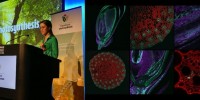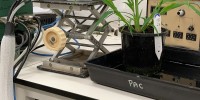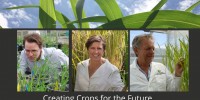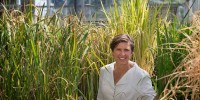Furbank Group – Improving photosynthesis and crop yield
Research in the Furbank Group focuses on the identification of enhanced photosynthetic properties in crop and model plant germplasm and improving C4 photosynthesis. In rice, the Group is using molecular techniques to install a CO2 concentrating mechanism as part of the IRRI led Bill and Melinda Gates Foundation-supported C4 Rice Consortium. In wheat, the Group works closely with the Grains Research and Development Corporation to identify genetic variation in photosynthetic performance and develop new tools for high throughput measurement of photosynthesis.
Group Leader
Postdoctoral Fellows
Technical Officers
Honorary Senior Lecturer
PhD Students
Technical Assistant
| Project | Status |
|---|---|
| C4 Rice Project | Current |
| Decrypting chloroplast signalling networks in C4 photosynthesis at cell type-resolution | Current |
| Improving C4 photosynthesis by genetic manipulation | Current |

Australian researchers take on G20 challenge to make energy efficient wheat

PS Seminar Series - How will plants adapt to a high CO2 world?

PS Seminar Series - A SWEET Journey from Source to Sink in Setaria viridis

PS Seminar Series - Paying the energy cost of C4 photosynthesis

PS Webinar Series- PhD Exit Seminar : Redesigning phosphoenolpyruvate carboxylase for improved catalysis in C4 photosynthesis

Special Plantae Seminar - Creating Crops for the Future: Challenges, Technology and Sustainable Solutions

PS Webinar Series: PhD Exit Webinar - Future-proofing cotton production by building resilient photosynthetic pathways

PS Webinar Series: Machine Learning, Satellites, and Crops – The (very near and exciting) future of space-based plant biology

PS Webinar Series: PhD Exit Webinar - The SWEET Journey from Source to Sink in Setaria viridis: The Role of Sugar Effluxers
















